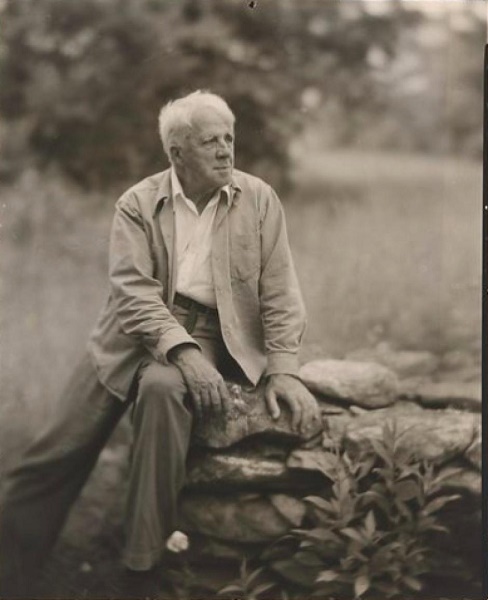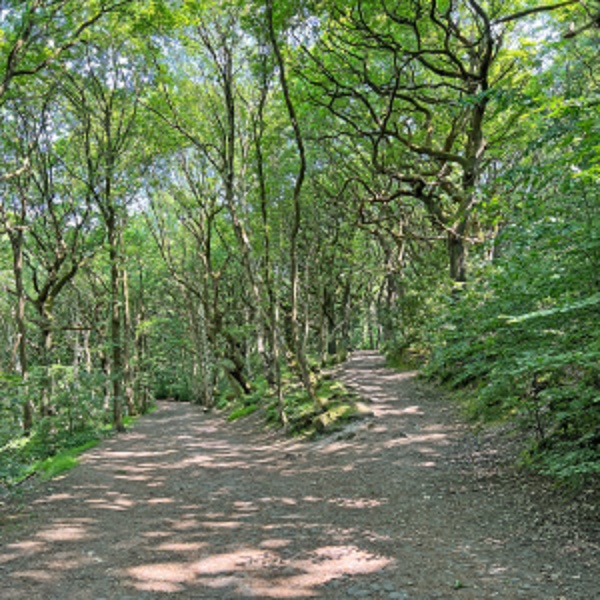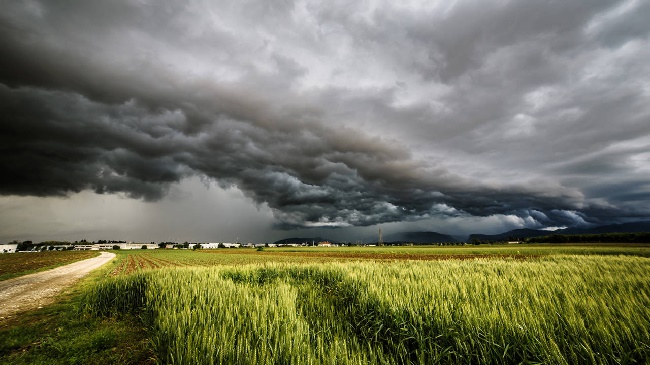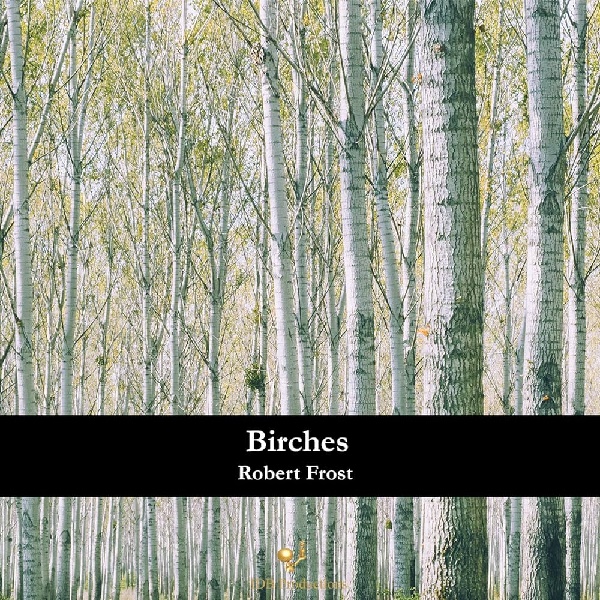Nacido el 26 de marzo de 1874 en San Francisco (EEUU), Robert Frost cumple un papel fundacional en lo que sería la modernidad poética en la literatura de habla inglesa. De una familia de origen humilde, tuvo una existencia muy marcada por la vida del campo, lo que se expresará en su poesía, y también por dolorosas experiencias de pérdida de seres queridos, desde su padre y madre, siendo muy joven, su esposa y varios de sus hijos. Desarrolló una intensa labor como educador de idioma y literatura. Recibió cuatro Premios Pulitzer por algunos de sus libros, entre los que pueden nombrarse: La voluntad de un joven (1913), Al norte de Boston (1914), New Hampshire (1923), Un arroyo que corre hacia el oeste (1928), Un árbol testigo (1943), entre otros.
Born on March 26, 1874 in San Francisco (USA), Robert Frost plays a foundational role in what would become the poetic modernity in English-language literature. From a family of humble origins, his life was marked by country life, which is expressed in his poetry, and also by painful experiences of loss of loved ones, from his father and mother, when he was very young, his wife and several of his children. He developed an intense work as a language and literature educator. He received four Pulitzer Prizes for some of his books, among them: A Young Man's Will (1913), North of Boston (1914), New Hampshire (1923), A Brook Running West (1928), A Witness Tree (1943), among others.

Son varios los aspectos con los que Robert Frost contribuye a la renovación de la poesía estadounidense, y que lo colocan en un alto nivel, como el que ocupan Walt Whitman y Emily Dickinson. La sencillez de su construcción poética en lenguaje (léxico) y estructura, muy próximo a la prosa y a lo coloquial, aunque no abandonó completamente la métrica y supo hacer un uso singular del ritmo. El modo tan propio de incorporar la vida de la naturaleza y de la gente, lejos de todo sentimentalismo, con una emoción decantada, donde lo pequeño o cotidiano se realza.
Reproduciré a continuación dos poemas completos suyos, donde estos aspectos pueden observarse, en particular el sentimiento del amor en el segundo, junto a la recreación de la naturaleza a través de la visión de la infancia y la presente conciencia del hablante poeta, como se expresa en la parte que transcribimos de "Abedules".
There are several aspects with which Robert Frost contributes to the renewal of American poetry, and that place him at a high level, such as that occupied by Walt Whitman and Emily Dickinson. The simplicity of his poetic construction in language (lexicon) and structure, very close to prose and colloquial, although he did not completely abandon the metric and knew how to make a singular use of rhythm. His own way of incorporating the life of nature and people, far from any sentimentalism, with a decanted emotion, where the small or everyday is enhanced.
I will reproduce below two complete poems of his, where these aspects can be observed, and in particular the feeling of love in the second one, together with the recreation of nature through the vision of childhood and the present conscience of the poet-speaker, as expressed in the part we transcribed from "Birches".
"El camino no elegido"
Dos caminos se bifurcaban en un bosque amarillo,
Y apenado por no poder tomar los dos
Siendo un viajero solo, largo tiempo estuve de pie
Mirando uno de ellos tan lejos como pude,
Hasta donde se perdía en la espesura;Entonces tomé el otro, imparcialmente,
Y habiendo tenido quizás la elección acertada,
Pues era tupido y requería uso;
Aunque en cuanto a lo que vi allí
Hubiera elegido cualquiera de los dos.Y ambos esa mañana yacían igualmente,
¡Oh, había guardado aquel primero para otro día!
Aun sabiendo el modo en que las cosas siguen adelante,
Dudé si debía haber regresado sobre mis pasos.Debo estar diciendo esto con un suspiro
De aquí a la eternidad:
Dos caminos se bifurcaban en un bosque y yo,
Yo tomé el menos transitado,
Y eso hizo toda la diferencia.
(Versión de Agustí Bartra)
"The Road Not Taken"
Two roads diverged in a yellow wood,
And sorry I could not travel both
And be one traveler, long I stood
And looked down one as far as I could
To where it bent in the undergrowth;Then took the other, as just as fair,
And having perhaps the better claim,
Because it was grassy and wanted wear;
Though as for that the passing there
Had worn them really about the same,And both that morning equally lay
In leaves no step had trodden black.
Oh, I kept the first for another day!
Yet knowing how way leads on to way,
I doubted if I should ever come back.I shall be telling this with a sigh
Somewhere ages and ages hence:
Two roads diverged in a wood, and I—
I took the one less traveled by,
And that has made all the difference.

"Canción de la tormenta"
Las nubes de la tormenta vuelan desgarradas y raudas´.
El camino está solo todo el día,
donde se alzan mil blancas peñas de cuarzo
y se borran las huellas de los cascos.
Las flores del camino, demasiado húmedas para las abejas,
dan en vano sus capullos.
Ven conmigo más allá de los montes, lejos,
y ámame bajo la lluvia.Menos tienen que decir los pájaros
en la rota desesperanza del mundo del bosque
que en todos estos innumerables años los elfos
aunque siempre han estado allí:
Todo canto del bosque está abatido como alguna
silvestre, fácilmente deshojada rosa.
Ven, ámame en los húmedos bosques, ven,
donde las ramas llueven cuando las mueve el viento.La ventisca nos sigue y urge
y acalla nuestro canto,
y el viento estremece el agua llana
donde recoges tu falda.
¿Qué importa llegar con pasos húmedos
si alcanzamos el poniente?
Cual broche rústico humedecerá tu pecho
la flor-d-oro que regó la lluvia.Oh, que nunca vuela este viento del desierto que avasalla
sin que parezca que retorna el mar
a las antiguas tierras donde dejó las conchas
antes de la edad de los helechos;
y me recuerda el tiempo cuando pasó la duda
y más fuerte fue el amor.
Oh, sal conmigo a la tormenta
y ámame bajo la lluvia.
(Versión de Gustavo Díaz Solís)
"A Line-storm Song"
The line-storm clouds fly tattered and swift,
The road is forlorn all day,
Where a myriad snowy quartz stones lift,
And the hoof-prints vanish away.
The roadside flowers, too wet for the bee,
Expend their bloom in vain.
Come over the hills and far with me,
And be my love in the rain.The birds have less to say for themselves
In the wood-world’s torn despair
Than now these numberless years the elves,
Although they are no less there:
All song of the woods is crushed like some
Wild, easily shattered rose.
Come, be my love in the wet woods; come,
Where the boughs rain when it blows.There is the gale to urge behind
And bruit our singing down,
And the shallow waters aflutter with wind
From which to gather your gown.
What matter if we go clear to the west,
And come not through dry-shod?
For wilding brooch shall wet your breast
The rain-fresh goldenrod.Oh, never this whelming east wind swells
But it seems like the sea’s return
To the ancient lands where it left the shells
Before the age of the fern;
And it seems like the time when after doubt
Our love came back amain.
Oh, come forth into the storm and rout
And be my love in the rain.

De "Abedules"
(solo su parte final)
Yo fui también, antaño, un columpiador de árboles;
muy a menudo sueño en que volveré a serlo,
cuando me hallo cansado de mis meditaciones,
y la vida parece un bosque sin caminos
donde, al vagar por él, sentirnos en la cara
ardiente el cosquilleo de rotas telarañas,
y un ojo lagrimea a causa de una brizna,
y quisiera alejarme de la tierra algún tiempo,
para luego volver y empezar otra vez.
Que jamás el destino, comprendiéndome mal,
me otorgue la mitad de lo que anhelo
y me niegue el regreso. Nada hay, para el amor,
como la tierra; ignoro si existe mejor sitio.
Quisiera encaramarme a un abedul, trepar,
por las ramas oscuras del blanquecino tronco
y subir hacia el cielo, hasta que el abedul,
doblándose vencido, me volviese a la tierra.
Subir y regresar sería muy hermoso.
Pues hay cosas peores en la vida que ser
un columpiador de árboles.
(Versión de Agustí Bartra)
En este enlace pueden leer el poema completo.
From "Birches"
(only its final part)
Kicking his way down through the air to the ground.
So was I once myself a swinger of birches.
And so I dream of going back to be.
It's when I'm weary of considerations,
And life is too much like a pathless wood
Where your face burns and tickles with the cobwebs
Broken across it, and one eye is weeping
From a twig's having lashed across it open.
I'd like to get away from earth awhile
And then come back to it and begin over.
May no fate willfully misunderstand me
And half grant what I wish and snatch me away
Not to return. Earth's the right place for love:
I don't know where it's likely to go better.
I'd like to go by climbing a birch tree,
And climb black branches up a snow-white trunk
Toward heaven, till the tree could bear no more,
But dipped its top and set me down again.
That would be good both going and coming back.
One could do worse than be a swinger of birches.
In this link you can read the complete poem.

Referencias | References:
Seis poema de Robert Frost(1963). Traducción: Gustavo Díaz Solís. Caracas: Universidad Central de Venezuela.
https://es.wikipedia.org/wiki/Robert_Frost
https://www.biografiasyvidas.com/biografia/f/frost.htm
http://amediavoz.com/frost.htm
https://ciudadseva.com/autor/robert-frost/poemas/
https://www.hermeneuta.es/articulo/poesia/poemas-robert-frost/20220328220945001288.html
https://poets.org/poet/robert-frost





